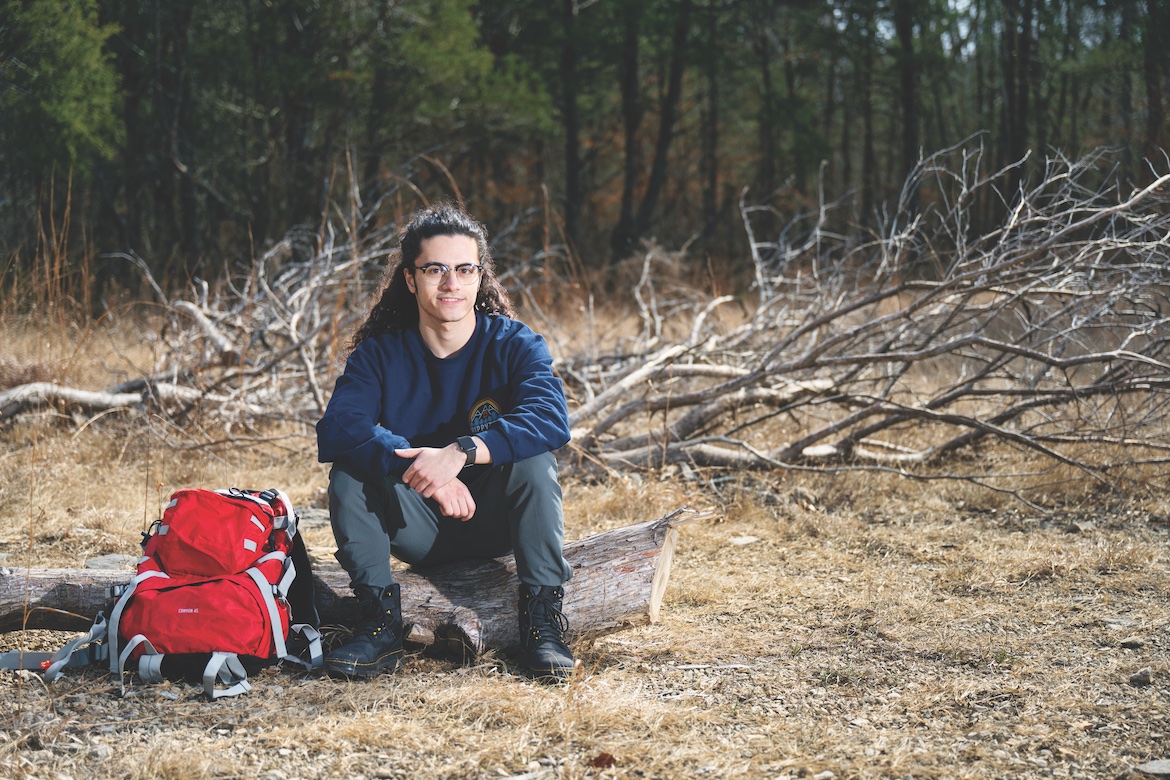
Goldwater winner Yaseen Ginnab journeys into the depths of untapped research
Article by Rachel Booher and photos by Andy Heidt
Yaseen Ginnab keeps himself active by going to the gym, hiking throughout the many local trails, and rock-climbing. As someone who aspires to pursue a career in forest ecology, the MTSU Honors student said he enjoys being in the forest, and it makes sense that he would feel most comfortable surrounded by the nature he studies.
In the realm of science and discovery, the senior Biology/Psychology double-major is a trailblazer, an intuitive mind, and a leader unearthing untapped research.
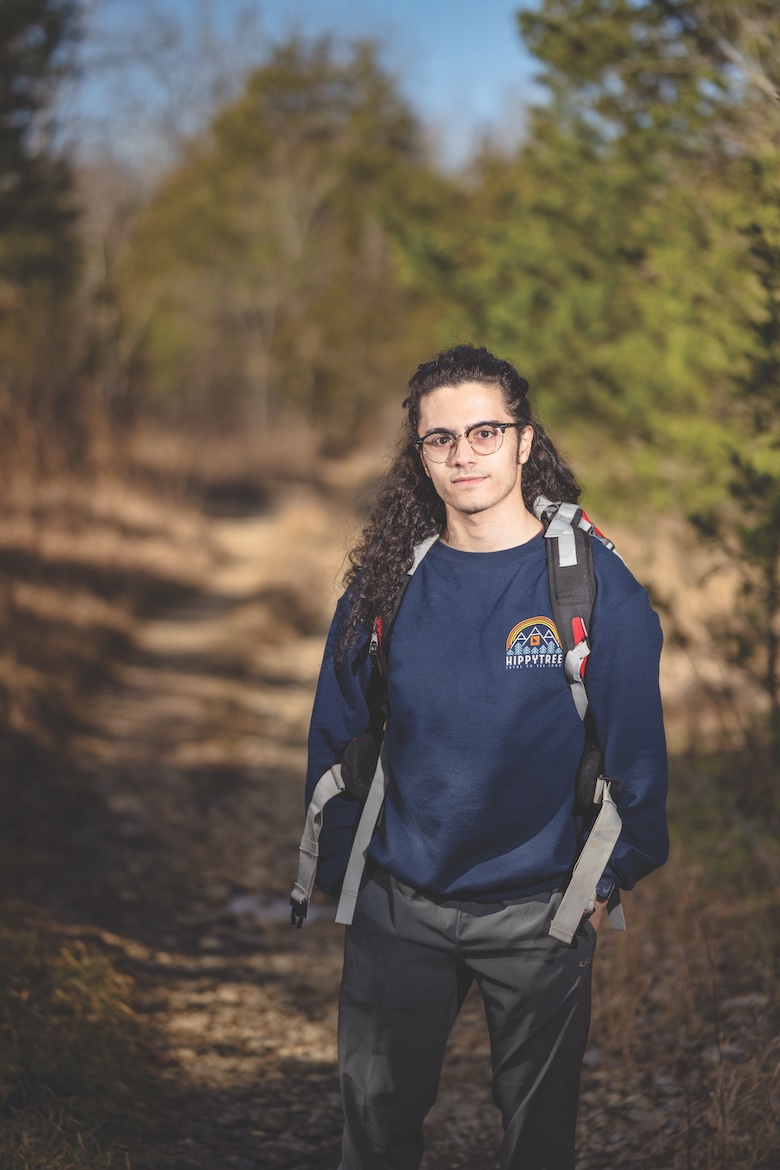
As a child, Ginnab was always interested in science, even going so far as to take apart his toys to see how they worked. When he got his first microscope and then entered high school, he fell in love with biology and chemistry. These passions became a life, and he carried his thirst for knowledge into college.
Ginnab entered MTSU in 2019, but research had not been part of the big picture until he took a general biology class with Professor Frank Bailey during his freshman year.
“I often stayed after class just to ask him things in more detail, and eventually, toward the end of the semester, he asked me if I had ever considered going into research,” Ginnab said.
Bailey, now his mentor, is the main reason Ginnab became involved in research and, eventually, the Honors College.
CONSERVATION EFFORTS
One of Ginnab’s first big ventures was the internship he received with the National Science Foundation Research Experience for Undergraduates (NSF REU) in the summer of 2021. He traveled to Central Michigan University’s biological station on Beaver Island in Lake Michigan and conducted a project titled “Lake Michigan’s Microbial Community’s Potential for Polycyclic Aromatic Hydrocarbon (PAH) Degradation.”
In simpler terms, there is a pipeline beneath Lake Michigan that could burst in the future. Although most of the oil could be removed, residual amounts would be left to the native bacteria to degrade.
“While the simpler molecules are degraded quickly, complex molecules [PAHs] remain in the environment for much longer,” Ginnab explained.
Even though he was only able to participate in this project for six weeks, Ginnab found that “all six water samples’ bacterial communities adapted to the presence of crude oil to degrade PAHs within seven days of exposure.” This is an incredible accomplishment, and good news for Lake Michigan.
Ginnab has participated in three different research projects at MTSU. This included helping Professors Ryan Otter and Bailey in a joint lab during fall 2021 in a research venture funded by the National Resources Conservation Service/U.S. Department of Agriculture to “implement an advanced water monitoring system in the Red River watershed in northern Tennessee.”
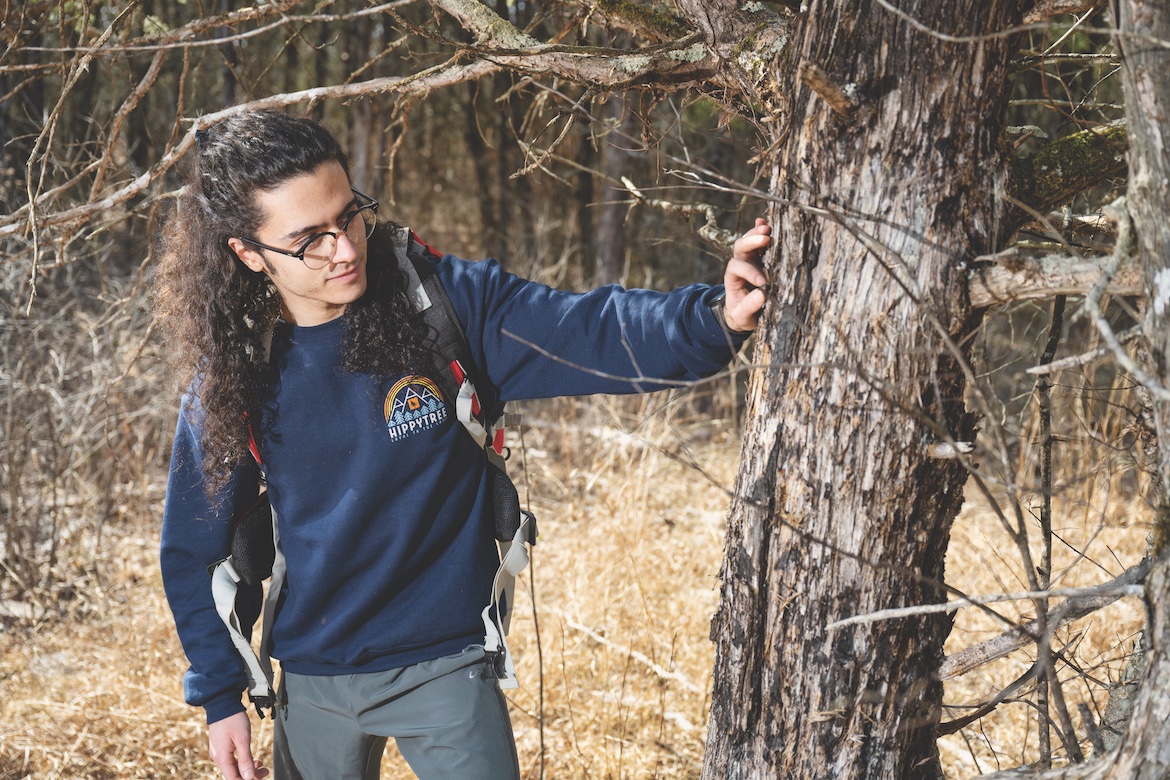
“Once a month, a team of two must take a day trip to manually download data from each of these data probes,” Ginnab said.
Secondly, Daniel Knorp, a graduate student in Jeffrey Walck’s lab in spring 2021 and 2022, has been conducting research on pollinator behaviors of the flower Astragalus bibullatus, commonly called Pyne’s ground plum. Ginnab assisted Knorp by observing and recording the process of pollination, including nectar collection and pollen grooming.
In the third MTSU project, Jessica Landaverde, a graduate student in Otter’s lab during the 2021–22 academic year, has been looking at the bioaccumulation of methylmercury in trophic levels by assessing the amount that is found in small water insects and the spiders that eat them. Ginnab has helped Landaverde with her field samplings of these creatures.
The commonality is that every project he assisted with involves conservation, solidifying his goals for a future career in forest ecology.
A WORLD OF EXPERIENCE
Ginnab also has received several awards linked with the Honors College. He is a recipient of the Outstanding Third Year Student Award, an Undergraduate Research Experience Creative Activity (URECA) grant at MTSU, and the extremely prestigious Goldwater Scholarship, as well as a second internship with Fulbright Canada MITACS Globalink Research.
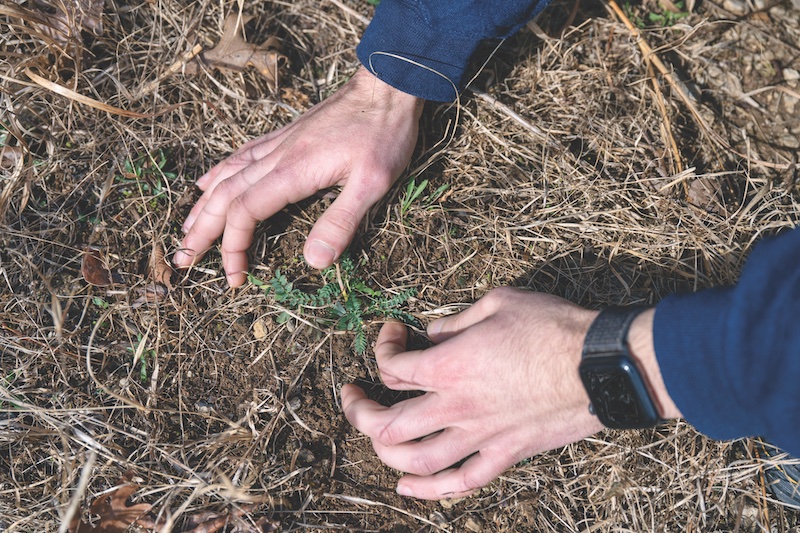
Tennessee milkvetch plant (Astragalus tennesseensis)
Ginnab was enticed to become an Honors student by the opportunity to write a thesis and the prospect of performing deeper research on subjects yet to be explored. And, of course, we can’t forget about early registration. His thesis, directed by Bailey, is titled “Analyzing the Ability of Astragalus tennesseensis to Accumulate Selenium.” It focuses entirely on the Astragalus tennesseensis (Tennessee milkvetch), a flowering plant that is almost exclusively native to middle Tennessee.
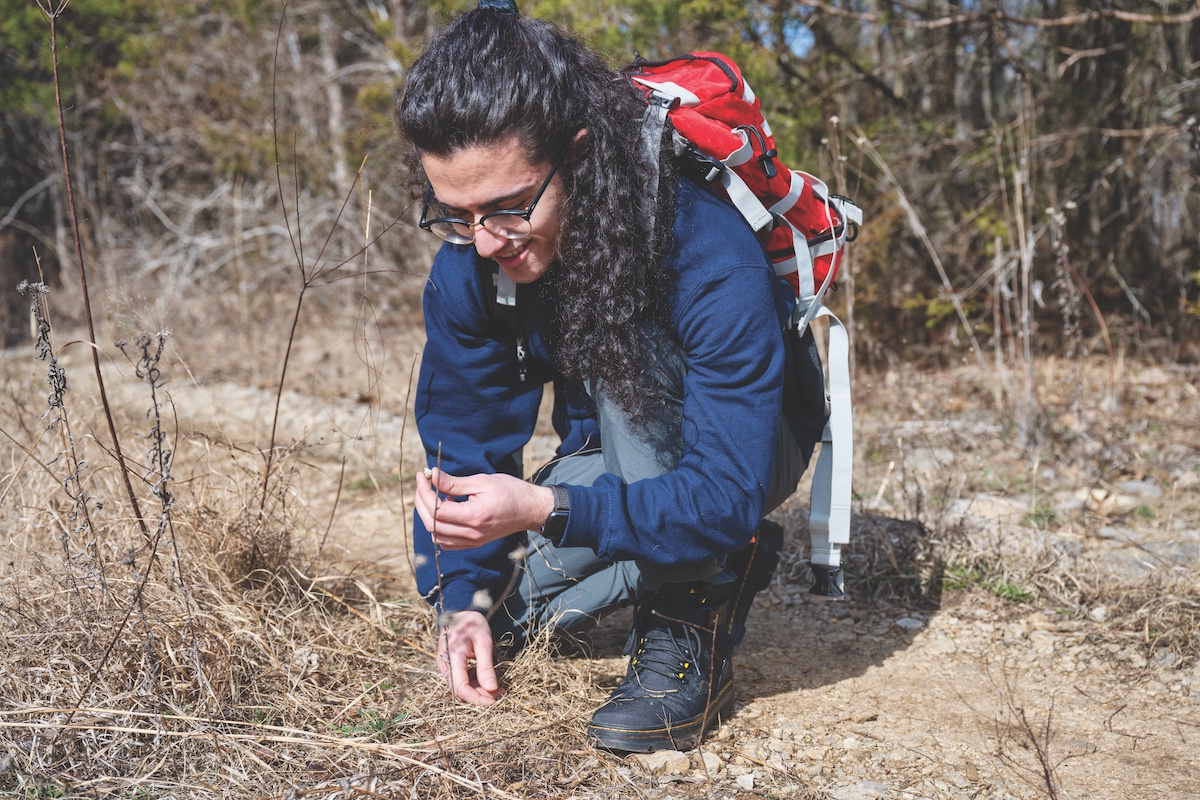
Examining a Tennessee milkvetch seedpod
The Astragalus genus has some fascinating abilities, with several species of this genus being able to hyperaccumulate selenium from the soil.
“There are currently no studies looking at Astragalus tennesseensis and selenium accumulation, which is why I wanted to research this topic,” Ginnab said. He explained that selenium is a key micronutrient, but in high quantities, it is toxic to both animals and humans. His main goal is to determine if the plant can accumulate selenium.
At the beginning of summer 2022, Ginnab traveled to Mount Saint Vincent University in Halifax, Nova Scotia, where he performed research involving polypores, a type of shelf or bracket fungi, that can parasitize living trees or decompose dead trees.
The experiences here [at MTSU] have been priceless. . . . There are so many resources here!
Ginnab is contemplating a future in academia—for the research, of course—and intends to pursue a master’s and a Ph.D. in Biology, conducting even more research that focuses on forest ecology and conservation.
“The experiences here [at MTSU] have been priceless, and all the professors have been amazing. There are so many resources here!”
For 2022, Ginnab was selected as the only national scholar for the Scholars for Conservation Leadership Program, which provides a one-year fellowship with a Land Trust after graduation, a housing allowance, a $50,000 salary, and more opportunities to make connections. He will then pursue a Biology master’s in Ecology and Evolution at the University of Colorado–Colorado Springs.
Ginnab has a bright future ahead of him. Wherever he ends up, there is one thing for certain—he is sure to pay it forward to others as a mentor and encourager.


COMMENTS ARE OFF THIS POST